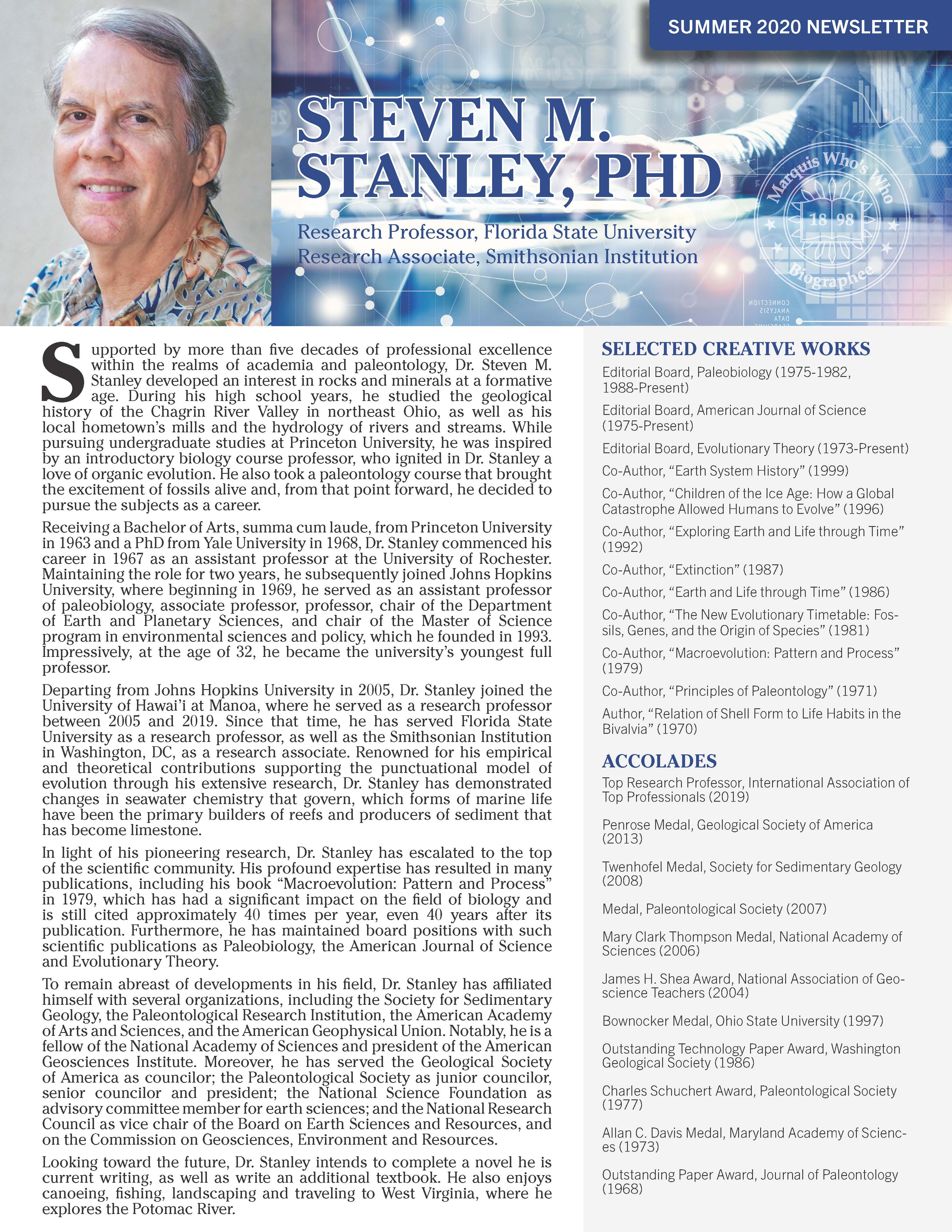
Receiving a Bachelor of Arts, summa cum laude, from Princeton University in 1963 and a PhD from Yale University in 1968, Dr. Stanley commenced his career in 1967 as an assistant professor at the University of Rochester. Maintaining the role for two years, he subsequently joined Johns Hopkins University, where beginning in 1969, he served as an assistant professor of paleobiology, associate professor, professor, chair of the Department of Earth and Planetary Sciences, and chair of the Master of Science program in environmental sciences and policy, which he founded in 1993. Impressively, at the age of 32, he became the university’s youngest full professor.
Departing from Johns Hopkins University in 2005, Dr. Stanley joined the University of Hawai’i at Manoa, where he served as a research professor between 2005 and 2019. Since that time, he has served Florida State University as a research professor, as well as the Smithsonian Institution in Washington, DC, as a research associate. Renowned for his empirical and theoretical contributions supporting the punctuational model of evolution through his extensive research, Dr. Stanley has demonstrated changes in seawater chemistry that govern, which forms of marine life have been the primary builders of reefs and producers of sediment that has become limestone.
In light of his pioneering research, Dr. Stanley has escalated to the top of the scientific community. His profound expertise has resulted in many publications, including his book “Macroevolution: Pattern and Process” in 1979, which has had a significant impact on the field of biology and is still cited approximately 40 times per year, even 40 years after its publication. Furthermore, he has maintained board positions with such scientific publications as Paleobiology, the American Journal of Science and Evolutionary Theory.
To remain abreast of developments in his field, Dr. Stanley has affiliated himself with several organizations, including the Society for Sedimentary Geology, the Paleontological Research Institution, the American Academy of Arts and Sciences, and the American Geophysical Union. Notably, he is a fellow of the National Academy of Sciences and president of the American Geosciences Institute. Moreover, he has served the Geological Society of America as councilor; the Paleontological Society as junior councilor, senior councilor and president; the National Science Foundation as advisory committee member for earth sciences; and the National Research Council as vice chair of the Board on Earth Sciences and Resources, and on the Commission on Geosciences, Environment and Resources.
Looking toward the future, Dr. Stanley intends to complete a novel he is current writing, as well as write an additional textbook. He also enjoys canoeing, fishing, landscaping and traveling to West Virginia, where he explores the Potomac River.